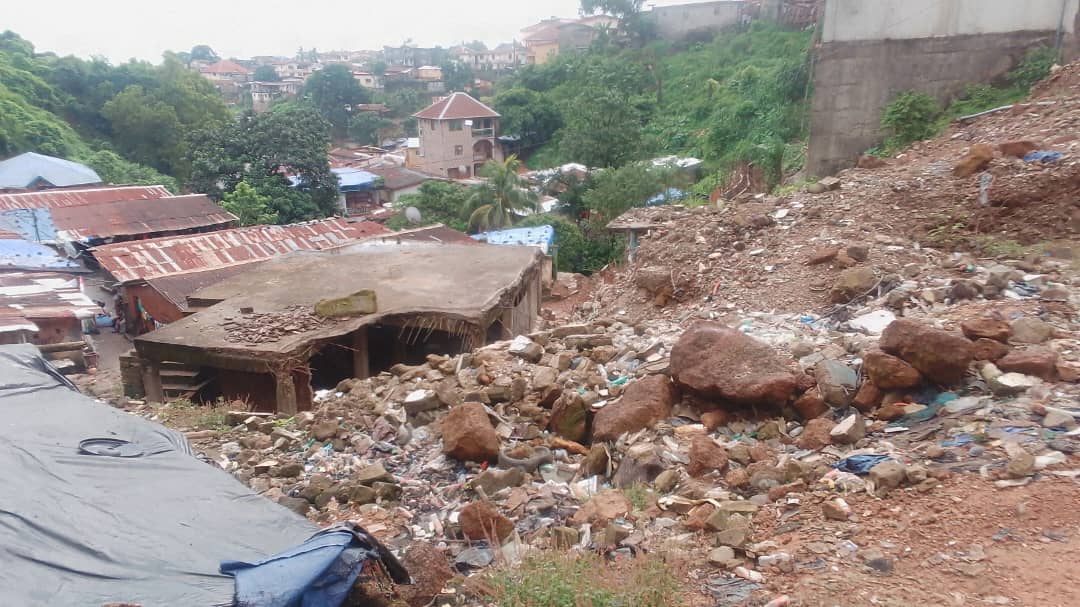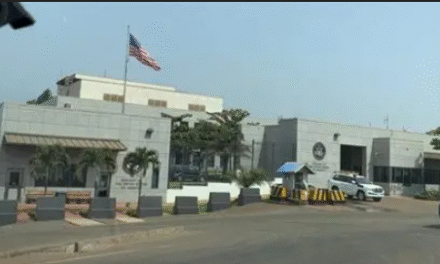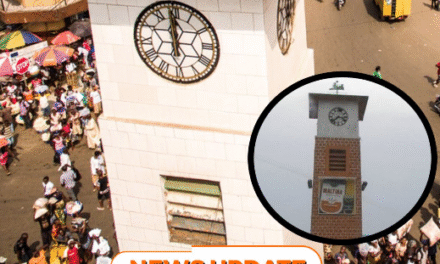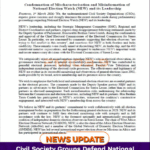By Andrew Chokpeleh
Exactly one year ago, a seven-storey building on Shell New Road in Freetown collapsed without warning, killing at least 16 people and injuring dozens more. What had once stood as a symbol of urban ambition became a graveyard of shattered dreams, its rubble frustrated families and the fragile hope of safe housing in Sierra Leone’s capital. One year on, the scars remain, not just in the soil, but in the silence of unanswered questions and the troubling signs of history repeating itself.
Preliminary investigations pointed to structural failure: a weak foundation, substandard iron rods, and diluted cement. Experts warned that the building was doomed from the start. Yet the collapse was not an isolated event; it was the loudest alarm in a city where poor construction and sloppy oversight have become routine.
Vice President Mohamed Juldeh Jalloh pledged swift reforms and a stronger National Disaster Management Agency (NDMA). But on the ground, little has changed. Across Freetown, unsafe structures continue to rise, often in disaster-prone zones, defying both logic and law.
Shockingly, new construction has begun around the very site of last year’s collapse.
“They said they’d be careful,” said Idrissa Tholley, a former resident of the area. “But they’re building again, right where people died.”
Tholley and others say the NDMA had marked the location as a danger zone, barring future development. Yet enforcement has been weak, and monitoring even weaker. Fatmata Kellie, who lost friends in the collapse, is appalled.
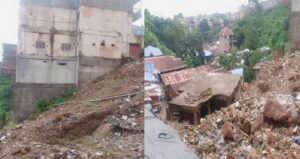
“We never thought anyone would dare build here again,” she said. “It’s like the lives lost meant nothing.”
Mohamed L. Bah, Director of Communications at NDMA, insists the agency is committed to safety.
“We’ve agreed with the Ministry of Lands, no building should go up there without professional clearance,” Bah told Truth Media. “We’re monitoring the site and ensuring that any rehabilitation is far from the collapse zone.”
But residents say the reality on the ground may tell a different story, with some attempting to defy instructions from the authorities. Without consistent enforcement, the cycle of risk continues.
The Sierra Leone Institution of Engineers had long urged a crackdown on the use of substandard materials. Civil society groups are demanding stricter building codes and transparent oversight. Yet the question remains: will the lessons of Shell New Road be buried along with its victims?
As Freetown rebuilds, the city must choose between memory and neglect, between safety and silence. Because if we forget, we risk reliving the tragedy. And next time, it might be worse.
